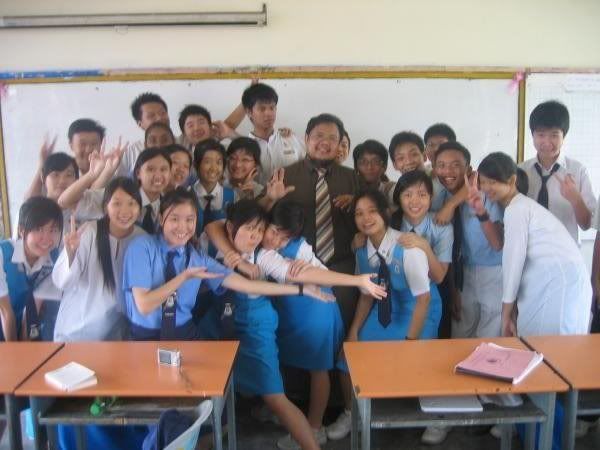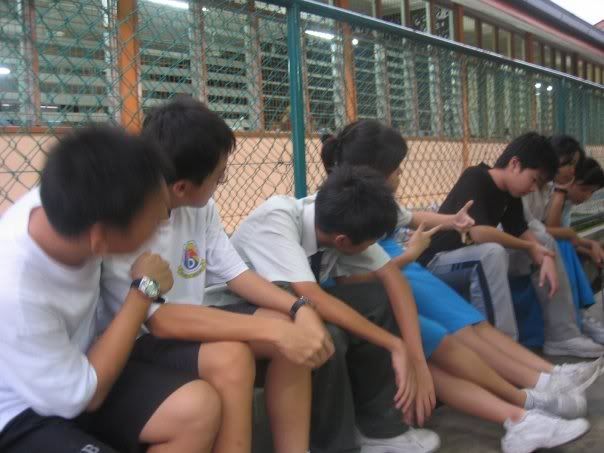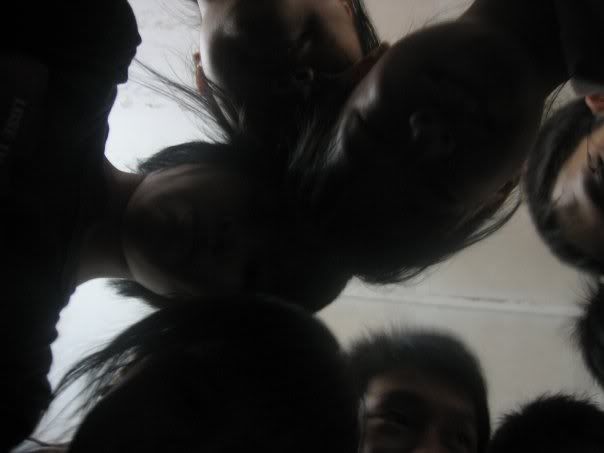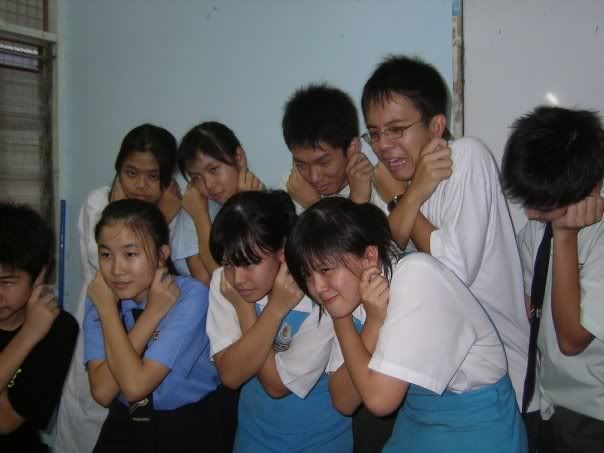


You would not believe your eyes,
If ten million fireflies.
Lit up the world as I fell asleep.
'Cause they fill the open air,
And leave teardrops everywhere.
You think me rude,
But I would just stand and stare.
I'd like to make myself believe,
That Planet Earth turns slowly.
It's hard to say that I'd rather stay awake when I'm asleep,
'Cause everything is never as it seems.
'Cause I get a thousand hugs,
From ten thousand lightning bugs.
As they try to teach me how to dance,
A foxtrot above my head,
A sockhop beneath my bed.
The disco ball is just hanging by a thread (thread, thread).
I'd like to make myself believe,
That Planet Earth turns slowly.
It's hard to say that I'd rather stay awake when I'm asleep,
'Cause everything is never as it seems (when I fall asleep).
Leave my door open just a crack (please take me away from here),
'Cause I feel like such an insomniac (please take me away from here).
Why do I tire of counting sheep? (please take me away from here)
When I'm far too tired to fall asleep.
To ten million fireflies,
I'm weird 'cause I hate goodbyes.
I got misty eyes as they said farewell (said farewell),
But I know where several are.
If my dreams get real bizarre,
'Cause I saved a few and I keep them in a jar.
I'd like to make myself believe,
That Planet Earth turns slowly.
It's hard to say that I'd rather stay awake when I'm asleep,
'Cause everything is never as it seems (when I fall asleep).
I'd like to make myself believe,
That Planet Earth turns slowly.
It's hard to say that I'd rather stay awake when I'm asleep,
'Cause everything is never as it seems (when I fall asleep).
I'd like to make myself believe,
That Planet Earth turns slowly.
It's hard to say that I'd rather stay awake when I'm asleep,
Because my dreams are bursting at the seams.
Five Ways To Kill A Man by Edwin BrockThere are many cumbersome ways to kill a man.
You can make him carry a plank of wood
to the top of a hill and nail him to it. To do this
properly you require a crowd of people
wearing sandals, a cock that crows, a cloak
to dissect, a sponge, some vinegar and one
man to hammer the nails home.
Or you can take a length of steel,
shaped and chased in a traditional way,
and attempt to pierce the metal cage he wears.
But for this you need white horses,
English trees, men with bows and arrows,
at least two flags, a prince, and a
castle to hold your banquet in.
Dispensing with nobility, you may, if the wind
allows, blow gas at him. But then you need
a mile of mud sliced through with ditches,
not to mention black boots, bomb craters,
more mud, a plague of rats, a dozen songs
and some round hats made of steel.
In an age of aeroplanes, you may fly
miles above your victim and dispose of him by
pressing one small switch. All you then
require is an ocean to separate you, two
systems of government, a nation's scientists,
several factories, a psychopath and
land that no-one needs for several years.
These are, as I began, cumbersome ways
to kill a man. Simpler, direct, and much more neat
is to see that he is living somewhere in the middle
of the twentieth century, and leave him there.




I used to love listening to stories about faraway places. It was almost pathological.
There was a time, a good ten years ago now, when I went around latching onto one person after another, asking them to tell me about the places where they were born and grew up. Times were short of people willing to lend a sympathetic ear, it seemed, so anyone and everyone opened up to me, obligingly and emphatically telling all. People I didn’t even know somehow got word of me and sought me out.
It was as if they were tossing rocks down a dry well: they’d spill all kinds of different stories my way, and when they’d finished, they’d go home pretty much satisfied. Some would talk contentedly; some would work up quite an anger getting it out. Some would put things well, but just as often others would come along with stories I couldn’t make head nor tail of from beginning to end. There were boring stories, pathetic tear-jerkers, jumbles of half-nonsense. Even so, I’d hold out as long as I could and give a serious listen.
Everyone had something they were dying to tell somebody or shout to the whole world –who knows why? I always felt as if I’d been handed a cardboard box crammed full of monkeys. I’d take the monkeys out of the box one at a time, carefully brush off the dust, give them a pat on the bottom, and send them scurrying off into the fields. I never knew where they went from there. They probably ended their days nibbling acorns somewhere. But that, after all, was their fate.
There were no troublesome memories in his childish sleep; no token came to him of his brave days at college, of the glittering years when he flustered the hearts of many girls. There were only the white, safe walls of his crib and Nana and a man who came to see him sometimes, and a great big orange ball that Nana pointed at just before his twilight bed hour and called "sun." When the sun went his eyes were sleepy--there were no dreams, no dreams to haunt him.
The past--the wild charge at the head of his men up San Juan Hill; the first years of his marriage when he worked late into the summer dusk down in the busy city for young Hildegarde whom he loved; the days before that when he sat smoking far into the night in the gloomy old Button house on Monroe Street with his grandfather-all these had faded like unsubstantial dreams from his mind as though they had never been. He did not remember.
He did not remember clearly whether the milk was warm or cool at his last feeding or how the days passed--there was only his crib and Nana's familiar presence. And then he remembered nothing. When he was hungry he cried--that was all. Through the noons and nights he breathed and over him there were soft mumblings and murmurings that he scarcely heard, and faintly differentiated smells, and light and darkness.
Then it was all dark, and his white crib and the dim faces that moved above him, and the warm sweet aroma of the milk, faded out altogether from his mind.
You would not believe your eyes,
If ten million fireflies.
Lit up the world as I fell asleep.
'Cause they fill the open air,
And leave teardrops everywhere.
You think me rude,
But I would just stand and stare.
I'd like to make myself believe,
That Planet Earth turns slowly.
It's hard to say that I'd rather stay awake when I'm asleep,
'Cause everything is never as it seems.
'Cause I get a thousand hugs,
From ten thousand lightning bugs.
As they try to teach me how to dance,
A foxtrot above my head,
A sockhop beneath my bed.
The disco ball is just hanging by a thread (thread, thread).
I'd like to make myself believe,
That Planet Earth turns slowly.
It's hard to say that I'd rather stay awake when I'm asleep,
'Cause everything is never as it seems (when I fall asleep).
Leave my door open just a crack (please take me away from here),
'Cause I feel like such an insomniac (please take me away from here).
Why do I tire of counting sheep? (please take me away from here)
When I'm far too tired to fall asleep.
To ten million fireflies,
I'm weird 'cause I hate goodbyes.
I got misty eyes as they said farewell (said farewell),
But I know where several are.
If my dreams get real bizarre,
'Cause I saved a few and I keep them in a jar.
I'd like to make myself believe,
That Planet Earth turns slowly.
It's hard to say that I'd rather stay awake when I'm asleep,
'Cause everything is never as it seems (when I fall asleep).
I'd like to make myself believe,
That Planet Earth turns slowly.
It's hard to say that I'd rather stay awake when I'm asleep,
'Cause everything is never as it seems (when I fall asleep).
I'd like to make myself believe,
That Planet Earth turns slowly.
It's hard to say that I'd rather stay awake when I'm asleep,
Because my dreams are bursting at the seams.
Five Ways To Kill A Man by Edwin BrockThere are many cumbersome ways to kill a man.
You can make him carry a plank of wood
to the top of a hill and nail him to it. To do this
properly you require a crowd of people
wearing sandals, a cock that crows, a cloak
to dissect, a sponge, some vinegar and one
man to hammer the nails home.
Or you can take a length of steel,
shaped and chased in a traditional way,
and attempt to pierce the metal cage he wears.
But for this you need white horses,
English trees, men with bows and arrows,
at least two flags, a prince, and a
castle to hold your banquet in.
Dispensing with nobility, you may, if the wind
allows, blow gas at him. But then you need
a mile of mud sliced through with ditches,
not to mention black boots, bomb craters,
more mud, a plague of rats, a dozen songs
and some round hats made of steel.
In an age of aeroplanes, you may fly
miles above your victim and dispose of him by
pressing one small switch. All you then
require is an ocean to separate you, two
systems of government, a nation's scientists,
several factories, a psychopath and
land that no-one needs for several years.
These are, as I began, cumbersome ways
to kill a man. Simpler, direct, and much more neat
is to see that he is living somewhere in the middle
of the twentieth century, and leave him there.




I used to love listening to stories about faraway places. It was almost pathological.
There was a time, a good ten years ago now, when I went around latching onto one person after another, asking them to tell me about the places where they were born and grew up. Times were short of people willing to lend a sympathetic ear, it seemed, so anyone and everyone opened up to me, obligingly and emphatically telling all. People I didn’t even know somehow got word of me and sought me out.
It was as if they were tossing rocks down a dry well: they’d spill all kinds of different stories my way, and when they’d finished, they’d go home pretty much satisfied. Some would talk contentedly; some would work up quite an anger getting it out. Some would put things well, but just as often others would come along with stories I couldn’t make head nor tail of from beginning to end. There were boring stories, pathetic tear-jerkers, jumbles of half-nonsense. Even so, I’d hold out as long as I could and give a serious listen.
Everyone had something they were dying to tell somebody or shout to the whole world –who knows why? I always felt as if I’d been handed a cardboard box crammed full of monkeys. I’d take the monkeys out of the box one at a time, carefully brush off the dust, give them a pat on the bottom, and send them scurrying off into the fields. I never knew where they went from there. They probably ended their days nibbling acorns somewhere. But that, after all, was their fate.
There were no troublesome memories in his childish sleep; no token came to him of his brave days at college, of the glittering years when he flustered the hearts of many girls. There were only the white, safe walls of his crib and Nana and a man who came to see him sometimes, and a great big orange ball that Nana pointed at just before his twilight bed hour and called "sun." When the sun went his eyes were sleepy--there were no dreams, no dreams to haunt him.
The past--the wild charge at the head of his men up San Juan Hill; the first years of his marriage when he worked late into the summer dusk down in the busy city for young Hildegarde whom he loved; the days before that when he sat smoking far into the night in the gloomy old Button house on Monroe Street with his grandfather-all these had faded like unsubstantial dreams from his mind as though they had never been. He did not remember.
He did not remember clearly whether the milk was warm or cool at his last feeding or how the days passed--there was only his crib and Nana's familiar presence. And then he remembered nothing. When he was hungry he cried--that was all. Through the noons and nights he breathed and over him there were soft mumblings and murmurings that he scarcely heard, and faintly differentiated smells, and light and darkness.
Then it was all dark, and his white crib and the dim faces that moved above him, and the warm sweet aroma of the milk, faded out altogether from his mind.